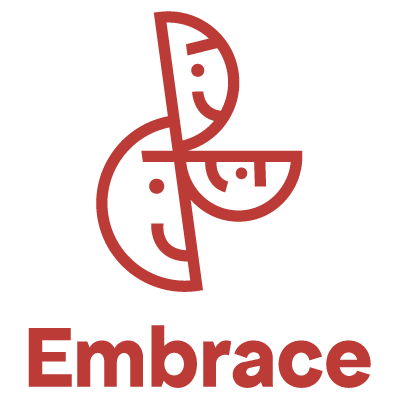EMBRACE is a two-year, EU-funded project promoting newcomers’ participation in designing and implementing integration policies alongside local decision-makers.
As the Migrant Integration Policy Index 2020 shows, political opportunities for migrants are improving, and overall EU countries are showing renewed interest in voting rights and the creation of consultative bodies. Despite this, political participation remains one of the weakest areas of integration policy.
The project stems from the need to meaningfully involve newcomers in decision-making and is based on the testing of pilot activities in 11 territories, across 6 European countries. A two-pronged training path will be developed, aimed at building the capacity of newcomers to engage socially and politically, and at developing in local governments the competences needed to include them in policy development. Listening sessions and workshops between migrants communities and policymakers will bring these groups to cooperate, negotiate proposals and practically implement new policies. The framework will be completed by establishing local groups of newcomers undertaking public leadership internships.
The project builds on close cooperation between NGOs working in the field and local/regional public authorities.
Careful monitoring and evaluation combined with strategic dissemination activities will validate the model for replication in other contexts, for the benefit of other EU institutions and communities.
Expected project outcomes
- at least 198 newcomers take part in pilot activities across 11 territories in Greece, Portugal, France, Italy, Slovenia, and Belgium;
- 110 relevant local stakeholders develop the capacity to involve newcomers in decision-making processes;
- structured activities of mutual listening and collaboration take place;
- 5 newcomers per location participate in public leadership internships;
- 11 public authorities gain the competences needed to meaningfully engage newcomers in the designing and implementation of policies and tackle challenges together;
- a unique model for newcomers’ participation is tested and made available for replicability at a local, national and European level.
The Consortium

Second Tree is a community-led, grassroots NGO that supports, teaches and learns with refugees across Northern Greece. Their mission is to change the way refugees are perceived by modeling an approach to community engagement that strengthens agency and enables each individual to reach their true potential.
secondtree.org

Glocal Factory is a network of experts working for inclusion and innovation in Europe. Our work relies on a wide international network of our partners, consisting on more than 30 public and private organisations and institutions but also schools from more than 20 countries inside and outside Europe.
glocalfactory.eu

ComParte - Maria Rosa Foundation, based in Portugal, promotes citizen participation in policy design for them to become more efficient, effective and humane. To this end, it creates contexts for listening to the experience of the beneficiaries and for their collaboration with professionals and decision-makers.
comparte.pt

Refugees Welcome Italia is a non-profit organization, based in Italy, engaged in promoting the social inclusion of refugees and people with other forms of protection through family-based hospitality and mentoring schemes.
refugees-welcome.it

PLACE accelerates and leverages the innovation newcomers bring to Europe. European societies need more and stronger voices with a recent history of migration to bring their perspectives and make their contributions to key economic sectors.
place-network.org

The Regional Development Agency for Podravje - Maribor (RDA Podravje - Maribor), as the central development agency in the Podravje region, together with its partner institutions, is the most important link for the development of the Municipality of Maribor as well as all the other 40 municipalities in the region.
rra-podravje.si

Mechelen is a city and municipality in Belgium. It is the 5th largest city in Flanders, with 86.900 residents and situated between Antwerp and Brussels. The number of citizens with migration background is 34% and top 5 countries of origin of newcomers are India, Rumania, the Netherlands, Morocco and Syria. Our policy is embracing diversity as a richness and conducting a positive narrative about all minorities.
mechelen.be

Ioannina has always been multicultural, multilingual and multireligious with Christian, Islamic and Jewish influences defining its identity. It has a population of 112.486 inhabitants, and has integrated many immigrants from Republic of Albania, Islamic Republic of Pakistan and other countries. The Municipality of Ioannina hosts more than 3000 refugees and asylum seekers in camps and urban settings.
ioannina.gr

Prato is an Italian municipality located in Tuscany. Hosting 44,507 foreign citizens out of a total of 194,312, it is the city with the highest percentage of foreign citizens in Italy (22.9%), coming from 125 different countries. Prato has a long tradition of welcoming and including citizens with migratory background, and it has developed over time an integrated and systemic approach at local level.
comune.prato.it

ZRC SAZU is a leading research and educational centre in Slovenia, mainly in the humanities and social science. More than three hundred researchers work within eighteen interconnected institutes that create a dynamic transdisciplinary research network.
